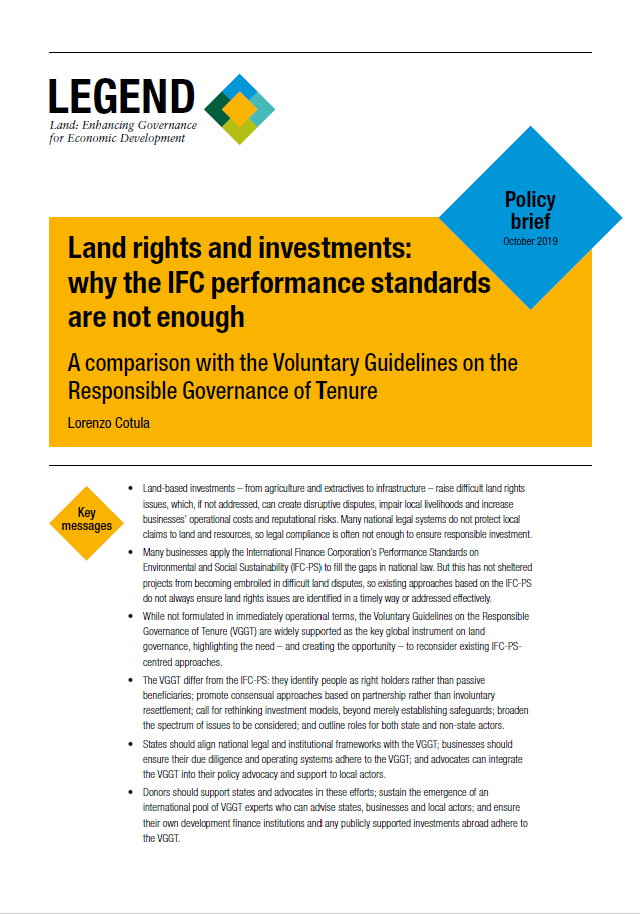Land rights and investments: why the IFC performance standards are not enough
A comparison with the Voluntary Guidelines on the Responsible Governance of Tenure
Key messages:
- Land-based investments – from agriculture and extractives to infrastructure – raise difficult land rights issues, which, if not addressed, can create disruptive disputes, impair local livelihoods and increase businesses’ operational costs and reputational risks. Many national legal systems do not protect local claims to land and resources, so legal compliance is often not enough to ensure responsible investment.
- Many businesses apply the International Finance Corporation’s Performance Standards on Environmental and Social Sustainability (IFC-PS) to fill the gaps in national law. But this has not sheltered projects from becoming embroiled in difficult land disputes, so existing approaches based on the IFC-PS do not always ensure land rights issues are identified in a timely way or addressed effectively.
- While not formulated in immediately operational terms, the Voluntary Guidelines on the Responsible Governance of Tenure (VGGT) are widely supported as the key global instrument on land governance, highlighting the need – and creating the opportunity – to reconsider existing IFC-PS-centred approaches.
- The VGGT differ from the IFC-PS: they identify people as right holders rather than passive beneficiaries; promote consensual approaches based on partnership rather than involuntary resettlement; call for rethinking investment models, beyond merely establishing safeguards; broaden the spectrum of issues to be considered; and outline roles for both state and non-state actors.
- States should align national legal and institutional frameworks with the VGGT; businesses should ensure their due diligence and operating systems adhere to the VGGT; and advocates can integrate the VGGT into their policy advocacy and support to local actors.
- Donors should support states and advocates in these efforts; sustain the emergence of an international pool of VGGT experts who can advise states, businesses and local actors; and ensure their own development finance institutions and any publicly supported investments abroad adhere to the VGGT.


